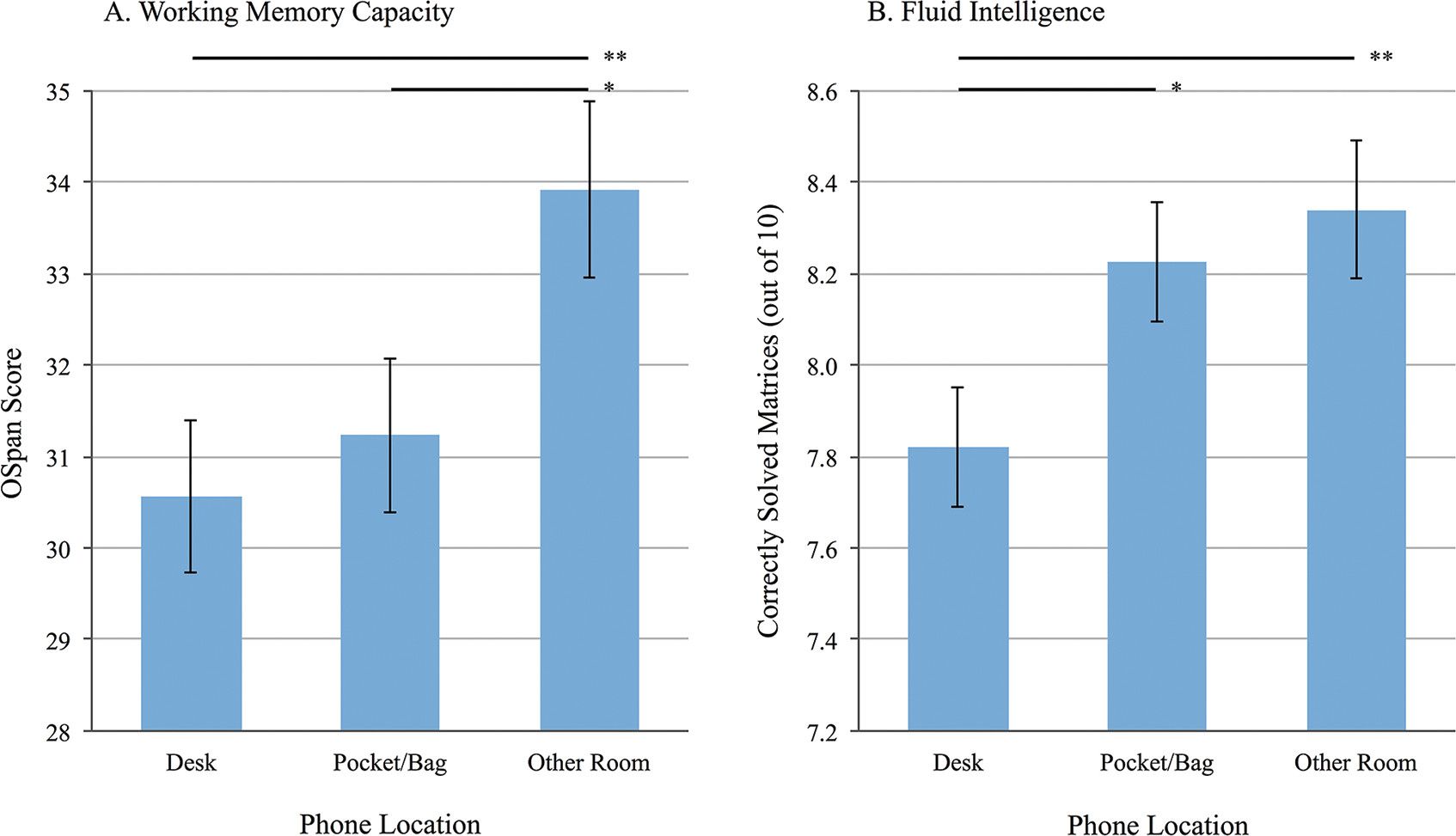In 10 seconds? A study has put forward the idea that the mere presence of our smartphones beside us can have a detrimental effect on our cognitive capacity. And that goes for even if we aren't using them. This is called the “brain drain” hypothesis.
So, how does this “brain drain” hypothesis work? The negative effect of the distracting effect of devices on our brainshas been well documented. This stems from the fact that human attention is a limited resource, meaning that the ability to ‘multitask’ really just depends on how fast we can juggle our focus. Moreover, research indicates that our attention tends to favor what is personally relevant, with more meaningful stimuli impairing getting in the way of our ability to keep focused. There is evidence that people can be so attached to their phones that they become physically agitated when separated. And now, recent research indicates that phones might hold such power over us that they can’t be ignored. Thus, the “brain drain” hypothesis proposes that when we’re trying not to use our phones, our brain counters this by placing a constant block on the object - causing a ‘drain’ effect on our attentional resources until they are exhausted.
Why can’t we ignore our phones? As our cultures evolve, smartphones have anchored themselves as the point from which most of us access the rest of the interconnected world. We use them to read the news, maintain relationships, conduct business, share opinions, and entertain ourselves. As a result, research has found that smartphones can end up ‘pulling’ on our attention in the same way the sound of our names does. This is due to how much space they take up in our minds – a bit like the Earth pulling on the Moon. Moreover, this effect can occur even when our smartphones aren’t at all related to the task at hand, inducing that familiar nagging feeling of "maybe just a quick look…"
How can we be sure this effect is real? The study tested this by running two experiments. The first explored phone salience – based on evidence that the brain creates a ‘priority map’ of objects in its surroundings. Would this change the "brain drain" effect? This was tested by changing the location of the phone from a table to a bag, and then to another room. The second explored individual differences – if people were more dependent on their phones, then they might struggle more with it laying close by.
What were they asked to do? Participants were asked to complete tasks that tested working memory – their capacity to consciously retain and manipulate information – and functional fluid intelligence – their ability to understand and solve novel problems. What they found matched their predictions – out of 50 questions testing working memory, those who had their phones on the table scored a rounded average of 31 correct, compared to those who had it in another room scoring an average of 34. Moreover, out of 10 questions testing fluid intelligence, participants scored an average of 7.8 vs 8.4. This occurred despite nobody using their phones in either situation. Furthermore, those who reported greater dependence on their phones scored even lower than those who didn’t – scoring a rounded average of 29 vs 33 on the working memory test, and supporting the idea that the mere presence of a phone is a drain.

Is “brain drain” that impactful? While this study identified a strong effect, there has been controversy about whether this is really the case. A more recent meta-analysis compared several experiments examining the “brain drain” hypothesis – collating studies from 2014 to 2022 that have looked at the effect of “brain drain” on various cognitive functions.
What functions are those? It identified five major ones of interest – working memory, fluid intelligence, sustained attention, inhibitory control, and cognitive flexibility. What it found after extensive analysis is that in fact, while “brain drain” is shown to have some effect on working memory, fluid intelligence, cognitive flexibility, and sustained attention, it was only found to be statistically significant for working memory. Moreover, despite the original study claiming such a strong effect, when analyzed alongside subsequent pieces of work the magnitude of the effect was actually much smaller. This suggests then that while “brain drain” is real, perhaps it isn’t as pervasive as the original study claimed, nor is as impactful.
Then why care about the “brain drain”? As consumers, we should be conscious of the increasing effect technology has on our daily lives. While smartphones continue to integrate themselves into how we operate, becoming aware of effects such as the “brain drain” can help us make more informed decisions about when and where might be appropriate to keep our gadgets on hand. It can also invite us to reflect on how enmeshed with our phones we might be, and combat unhelpful sensations such as FOMO – the fear that by not being online, we’re missing out on something important.
How much time do you think we spend on our phones?
We have been estimated to use our smartphones an average of 85 times a day. While most of those uses do tend to be for 30 seconds or less, it can add up to almost 5 hours of screen time a day for many people!
When asked, 91% of people reported never leaving home without their phone… and 46% stated they could no longer live without it. This might sound alarming, but I think as long as we remain mindful to enjoy in moderation - we can continue to touch our phones in the right places to summon a pizza to the front door.
Adam has distilled 14 research papers, saving you 49 hours of reading time.

The Science Integrity Check of this 3-min Science Digest was performed by Dr. Ángel V. Jiménez.






